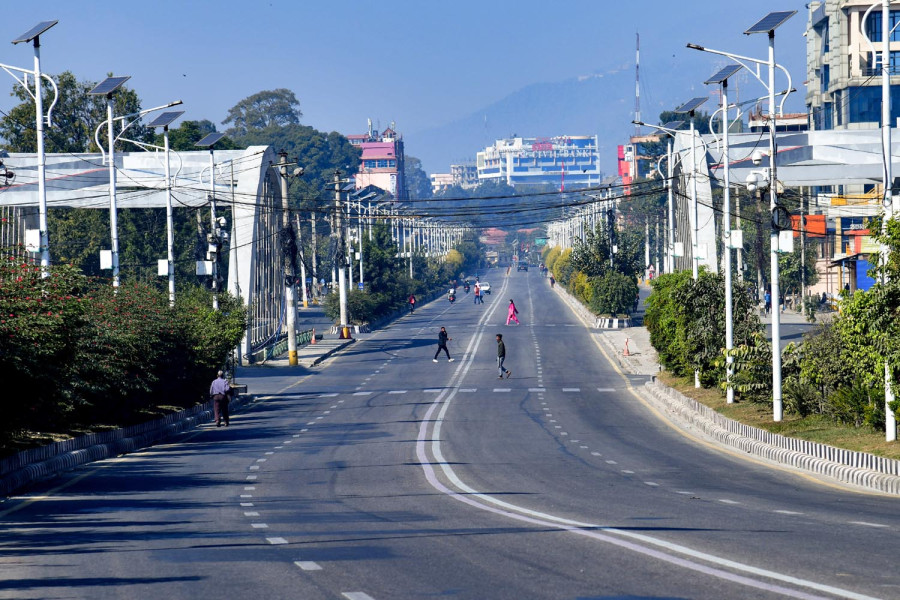Editorial
When Nepal stops
Government service delivery comes to a halt during elections. The cost is evident all around.
Of late, the whole country seems to have come to a halt to accomplish one single task: Conduct the elections. For weeks, officials have been missing from their posts at government offices and public utilities. Even those who are available appear to be in holiday mode. If there is something you want done, you will be met by a common refrain: Come after the elections (that is, when the vote counting ends, perhaps after a couple of weeks). Postponing even basic tasks citing impending festivals or occasions is an old problem of Nepal's bureaucracy. Elections are just another excuse. The cost of such inaction is evident all around. With most traffic police officers in Kathmandu Valley deployed for poll security, the number of traffic deaths in the valley doubled in the second week of this month. The Traffic Police admit that incidents of traffic violations rocketed as people didn’t see police officers on the road.
Even those responsible for monitoring the market have been sent on election duty, allowing unscrupulous merchants to sell substandard products and enjoy bumper profits. Officials at the Consumer Rights Investigation Forum said that traders had jacked up prices exorbitantly as all those responsible to check market misconduct—be it the police or market inspection officials—were engaged in the elections. Such is also the case in other sensitive sectors like health and education, where regular services have been badly hampered. Even essential health workers have been absent from duty as they were busy campaigning for candidates of their choice, or have been deployed to handle some election-related logistics.
The elaborate poll preparations and the number of government officials who need to be deployed in various election-related tasks could be significantly cut, for instance, with greater use of technology. The major parties have been needlessly suspicious of electronic voting when much of the democratic world has heartily embraced it in order to make the electoral process quicker and more efficient. To cite just one of the advantages, as the results can be announced almost instantaneously in an electronic voting system, government officials will not have to be deployed for weeks to tediously count every single ballot.
Not that the major parties are completely averse to embracing technology. The CPN-UML, the biggest party in the outgoing Parliament, has earned widespread praise for its judicious adoption of technology, both to communicate with the public and to conduct its important gatherings. Yet even the UML is reluctant to go the electronic voting way when it comes to national elections. The time has come for these parties to rethink their parochial insistence on paper ballots. Separately, elections or no elections, the involvement of those working in sensitive areas like health, traffic management and market monitoring should be banned and the ban strictly enforced. It is an irony that in the name of securing people’s right to vote, their right to timely health, education and road safety is being taken away. Periodic elections are at the heart of the democratic process. In order to spread their appeal, the process must be made as simple and efficient as possible.




 18.12°C Kathmandu
18.12°C Kathmandu














